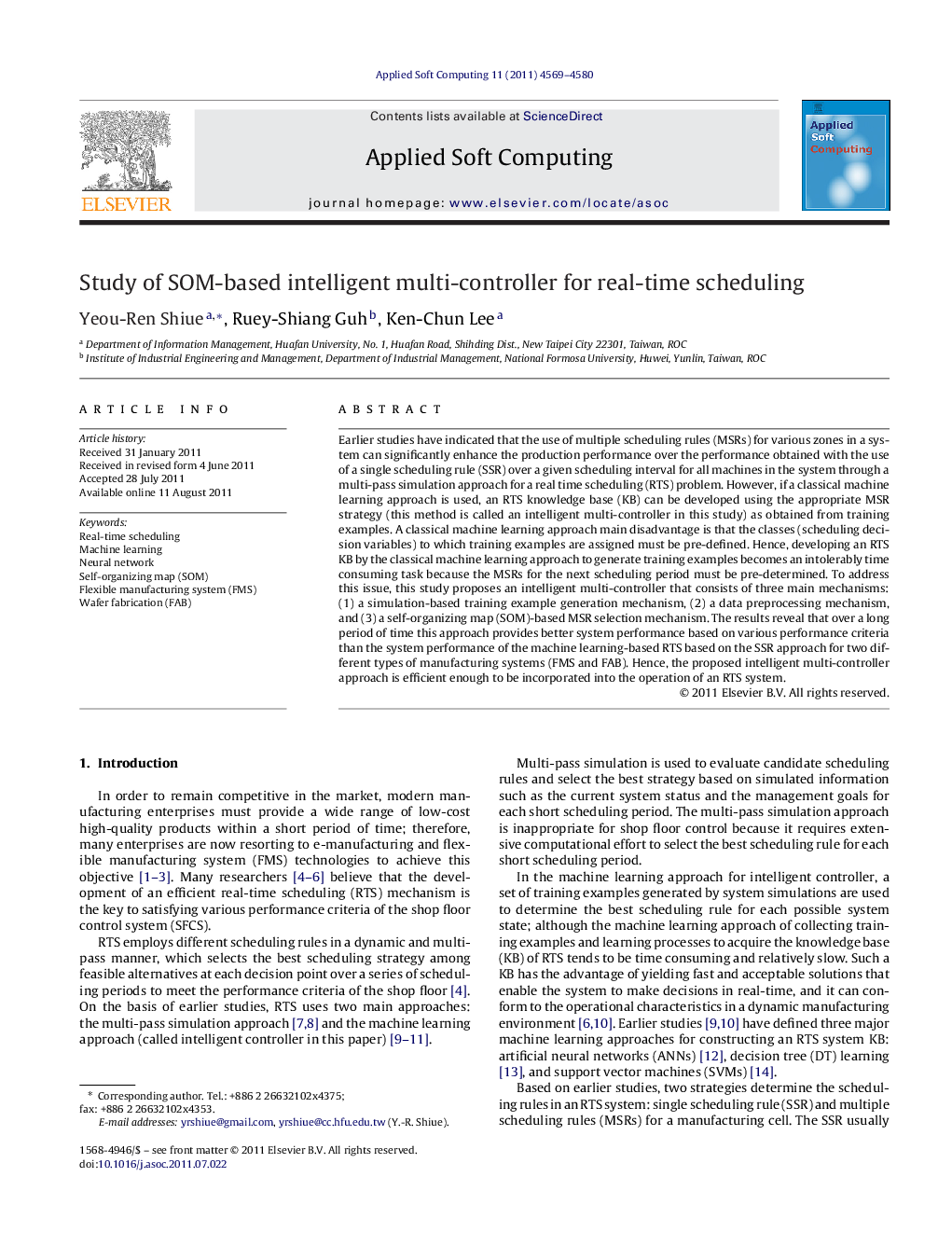| کد مقاله | کد نشریه | سال انتشار | مقاله انگلیسی | نسخه تمام متن |
|---|---|---|---|---|
| 496617 | 862866 | 2011 | 12 صفحه PDF | دانلود رایگان |

Earlier studies have indicated that the use of multiple scheduling rules (MSRs) for various zones in a system can significantly enhance the production performance over the performance obtained with the use of a single scheduling rule (SSR) over a given scheduling interval for all machines in the system through a multi-pass simulation approach for a real time scheduling (RTS) problem. However, if a classical machine learning approach is used, an RTS knowledge base (KB) can be developed using the appropriate MSR strategy (this method is called an intelligent multi-controller in this study) as obtained from training examples. A classical machine learning approach main disadvantage is that the classes (scheduling decision variables) to which training examples are assigned must be pre-defined. Hence, developing an RTS KB by the classical machine learning approach to generate training examples becomes an intolerably time consuming task because the MSRs for the next scheduling period must be pre-determined. To address this issue, this study proposes an intelligent multi-controller that consists of three main mechanisms: (1) a simulation-based training example generation mechanism, (2) a data preprocessing mechanism, and (3) a self-organizing map (SOM)-based MSR selection mechanism. The results reveal that over a long period of time this approach provides better system performance based on various performance criteria than the system performance of the machine learning-based RTS based on the SSR approach for two different types of manufacturing systems (FMS and FAB). Hence, the proposed intelligent multi-controller approach is efficient enough to be incorporated into the operation of an RTS system.
► A classical machine learning approach is not suitable for building KB for RTS.
► We proposed SOM-based MSRs selection mechanism to choose the most appropriate MSR.
► The results based on various performance criteria reveal that this approach provides better system performance than the machine learning-based RTS based on the SSR approach, for two different types of manufacturing systems (FMS and FAB).
Journal: Applied Soft Computing - Volume 11, Issue 8, December 2011, Pages 4569–4580